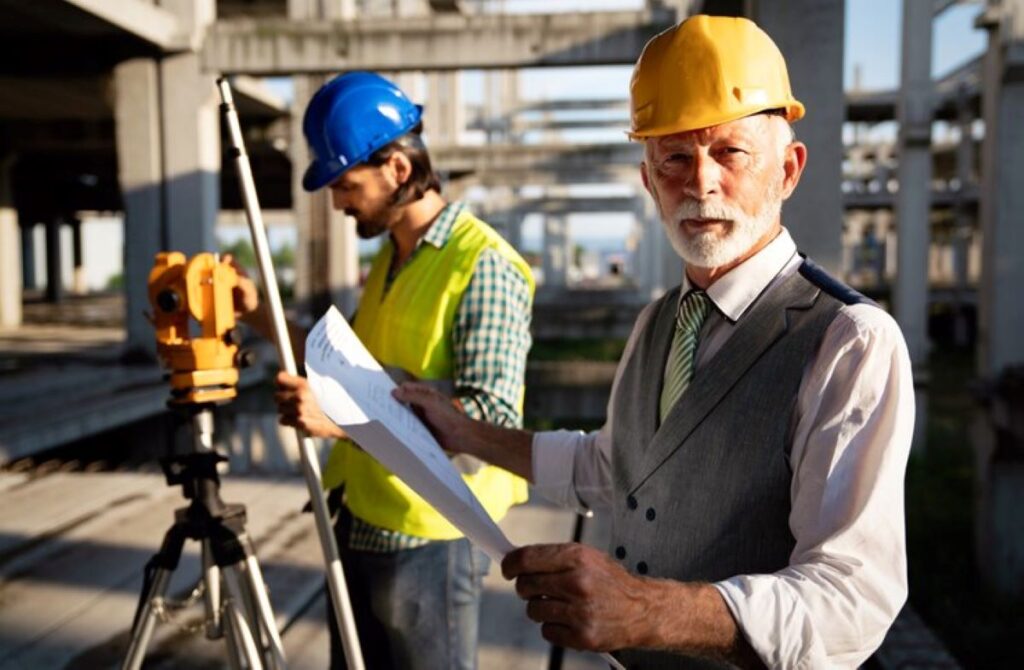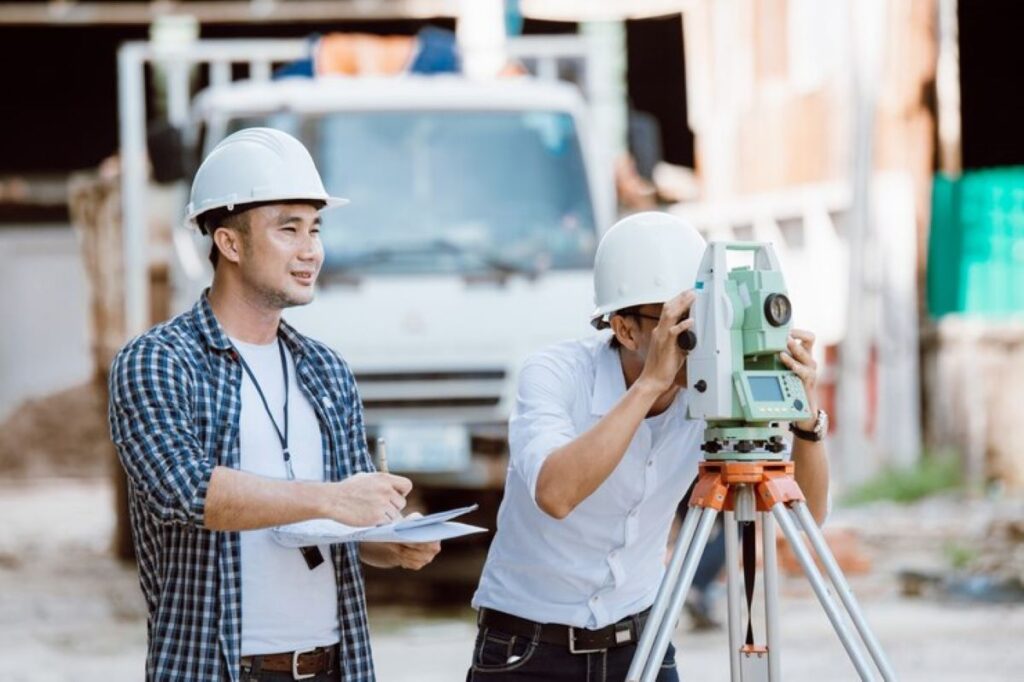Infrastructure projects are the backbone of modern society, encompassing everything from roads and bridges to railways and utilities. Within this complex web of development, engineering surveyors play a crucial role, ensuring that these projects are executed with precision and efficiency. This article delves into the multifaceted responsibilities of engineering surveyors, their significance in infrastructure projects, and the evolving technologies that enhance their work.
Understanding the Role of Engineering Surveyors
Engineering surveyors are specialists who apply their expertise in measurement and mapping to support various stages of infrastructure projects. Their work begins long before construction starts and continues throughout the project’s lifecycle. By providing accurate data and analysis, they ensure that projects are completed on time, within budget, and to the required specifications.
Key Responsibilities
The responsibilities of engineering surveyors can be broadly categorised into several key areas:
- Site Surveys: Before any construction begins, engineering surveyors conduct site surveys to gather essential data about the terrain, existing structures, and environmental conditions. This information is vital for planning and design.
- Setting Out: Once the design is finalised, surveyors are responsible for ‘setting out’ the project. This involves marking the exact locations where structures will be built, ensuring that everything aligns with the design specifications.
- Monitoring and Quality Control: Throughout the construction phase, engineering surveyors monitor the work to ensure compliance with design and regulatory standards. They perform regular checks to identify any discrepancies and suggest corrective actions.
Collaboration with Other Professionals
Engineering surveyors work closely with various professionals, including architects, civil engineers, and construction managers. This collaboration is essential for integrating their findings and insights into the broader project framework. By sharing data and expertise, they help to streamline processes and enhance overall project outcomes.
Moreover, effective communication between surveyors and other stakeholders is crucial. Regular updates and reports ensure that everyone involved is informed about progress and any potential issues that may arise. This proactive approach not only fosters a spirit of teamwork but also mitigates risks associated with miscommunication, which can lead to costly delays or rework.
In addition to their technical skills, engineering surveyors must possess a keen understanding of the legal and regulatory frameworks that govern construction projects. They often liaise with local authorities to ensure that all necessary permits and approvals are obtained before work commences. This aspect of their role is particularly important in urban environments, where zoning laws and environmental regulations can significantly impact project timelines and costs. By navigating these complexities, engineering surveyors play a pivotal role in facilitating smooth project execution and compliance with all relevant legislation.
The Importance of Accuracy in Surveying
Accuracy is paramount in engineering surveying. Even the smallest error can lead to significant consequences, including project delays, increased costs, and safety hazards. Engineering surveyors employ various techniques and technologies to ensure precision in their work.
Technological Advancements
The surveying profession has seen remarkable advancements in technology, which have transformed the way engineering surveyors operate. Tools such as GPS, laser scanning, and drones have revolutionised data collection and analysis.
For instance, GPS technology allows surveyors to obtain precise location data quickly and efficiently. Laser scanning provides detailed 3D models of sites, enabling better visualisation and analysis of complex structures. Drones, on the other hand, facilitate aerial surveys, covering large areas in a fraction of the time it would take using traditional methods.
Moreover, the integration of Geographic Information Systems (GIS) has further enhanced the capabilities of surveyors. GIS enables the layering of different data sets, allowing for a comprehensive analysis of geographical information. This is particularly useful in urban planning and environmental assessments, where understanding the interplay between various factors is crucial. The ability to visualise data spatially aids stakeholders in making informed decisions that consider both current and future implications.
Data Management and Analysis
With the increase in data collection capabilities comes the need for effective data management and analysis. Engineering surveyors utilise advanced software to process and interpret the data collected during surveys. This software aids in creating detailed reports, visualisations, and models that inform decision-making throughout the project.
In addition to software, the role of cloud computing cannot be overlooked. By storing data in the cloud, surveyors can access and share information seamlessly with team members and clients, regardless of their location. This not only enhances collaboration but also ensures that everyone involved in a project is working with the most up-to-date information. Furthermore, the implementation of machine learning algorithms is beginning to play a role in predictive analysis, allowing surveyors to identify potential issues before they arise, thereby improving overall project outcomes.
By harnessing these technological advancements, engineering surveyors can enhance their accuracy and efficiency, ultimately contributing to the successful delivery of infrastructure projects.

Challenges Faced by Engineering Surveyors
Despite the advancements in technology and methodologies, engineering surveyors encounter various challenges in their work. Understanding these challenges is essential for developing strategies to mitigate them.
Environmental Factors
One of the primary challenges faced by engineering surveyors is the impact of environmental factors on their work. Weather conditions, such as heavy rain or extreme temperatures, can hinder surveying activities and affect the accuracy of measurements. Additionally, the presence of natural obstacles, such as trees or bodies of water, can complicate data collection.
To address these challenges, surveyors often need to adapt their methodologies and utilise alternative techniques. For instance, they may employ remote sensing technologies to gather data in difficult-to-reach areas, minimising the impact of environmental factors on their work. Furthermore, the seasonal variations can also present difficulties; for example, winter months may lead to snow cover that obscures critical landmarks, while summer heat can cause equipment to overheat or malfunction. Surveyors must therefore be equipped with not only the right tools but also the knowledge of how to operate them under varying conditions, ensuring that they can maintain accuracy and efficiency regardless of the environment.
Regulatory Compliance
Engineering surveyors must also navigate a complex landscape of regulations and standards. Compliance with local, state, and national regulations is essential to ensure that projects meet legal requirements and industry standards. This can be particularly challenging in large-scale infrastructure projects that involve multiple stakeholders and jurisdictions.
To overcome these challenges, engineering surveyors must stay informed about the latest regulations and best practices. Continuous professional development and training are vital for ensuring that they possess the knowledge and skills necessary to navigate this complex landscape. Moreover, the rapid evolution of technology often leads to new regulatory requirements, particularly concerning data privacy and the use of drones in surveying. As such, surveyors must not only be adept at understanding existing laws but also be proactive in anticipating changes that may arise in the future. This commitment to ongoing education not only enhances their professional capabilities but also fosters a culture of compliance and ethical practice within the industry.
The Future of Engineering Surveying
The future of engineering surveying is poised for continued evolution, driven by advancements in technology and changing industry needs. As infrastructure projects become more complex, the demand for skilled engineering surveyors will only increase.
Emerging Technologies
Emerging technologies, such as artificial intelligence (AI) and machine learning, are set to revolutionise the surveying profession further. These technologies can analyse vast amounts of data quickly, identifying patterns and trends that may not be immediately apparent to human surveyors.
Moreover, the integration of AI into surveying tools can enhance accuracy and efficiency, allowing surveyors to focus on higher-level decision-making and problem-solving. As these technologies become more prevalent, engineering surveyors will need to adapt and embrace new ways of working.
Sustainability and Environmental Considerations
As society becomes increasingly aware of the importance of sustainability, engineering surveyors will play a vital role in ensuring that infrastructure projects are environmentally responsible. This includes assessing the environmental impact of projects, implementing sustainable practices, and promoting the use of eco-friendly materials.
By integrating sustainability into their work, engineering surveyors can contribute to the development of infrastructure that meets the needs of present and future generations.

Conclusion
Engineering surveyors are an indispensable part of infrastructure projects, providing essential data and insights that drive successful outcomes. Their expertise in measurement, mapping, and analysis ensures that projects are executed with precision and compliance with regulatory standards. As technology continues to evolve, the role of engineering surveyors will expand, presenting new opportunities and challenges.
In an era where infrastructure is critical to economic growth and societal well-being, the contribution of engineering surveyors cannot be overstated. Their commitment to accuracy, collaboration, and innovation will shape the future of infrastructure development, making it more efficient, sustainable, and resilient.
Related : Why Subsurface Utility Locating Is Vital Before Excavation
